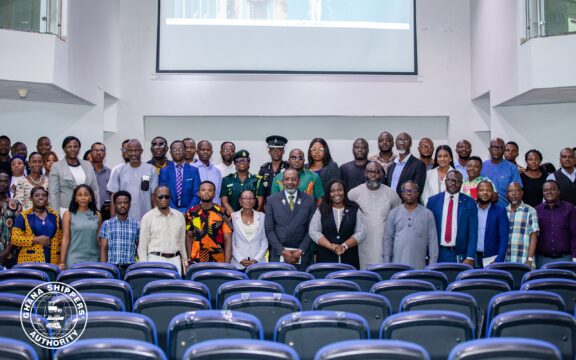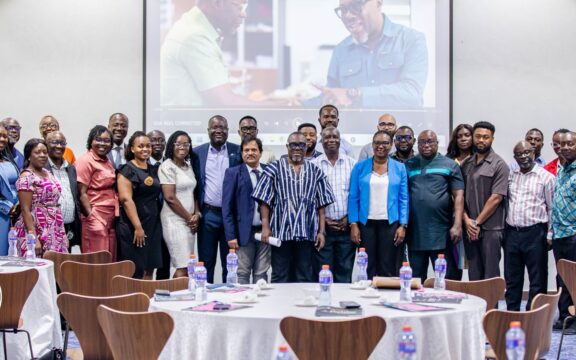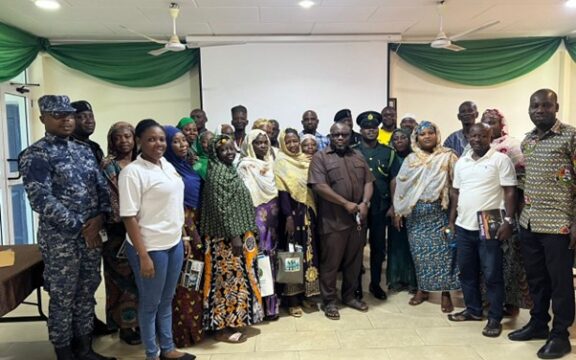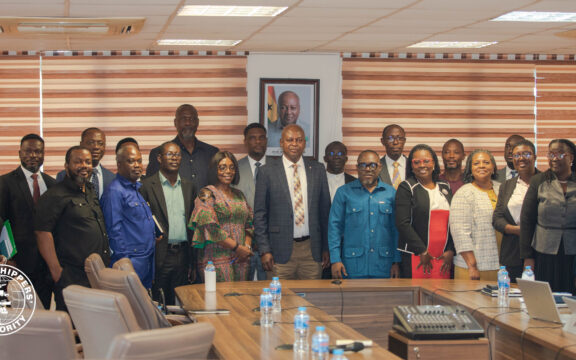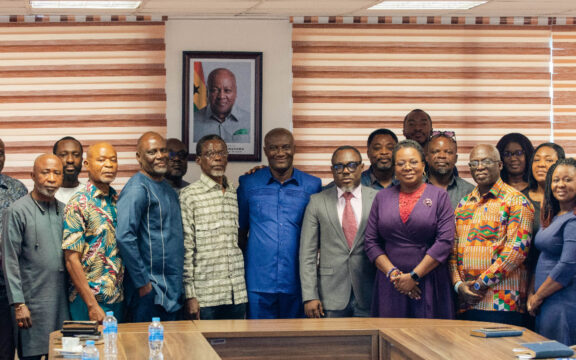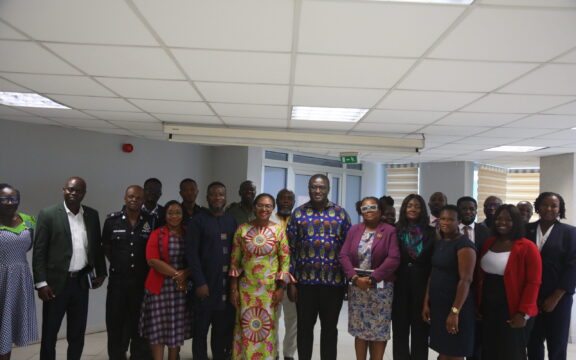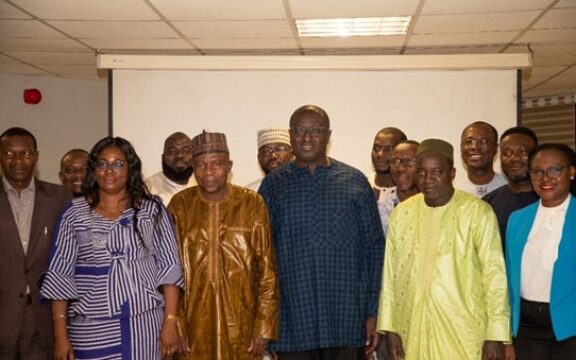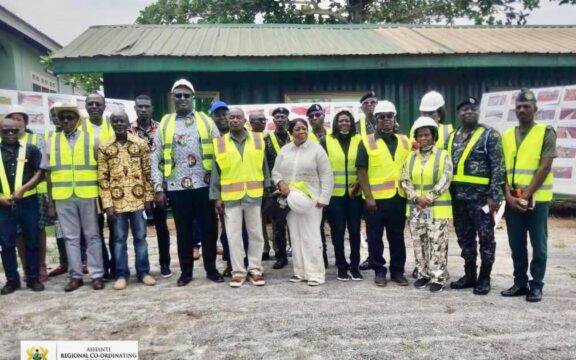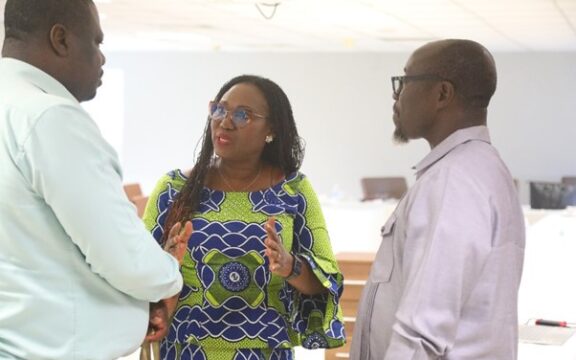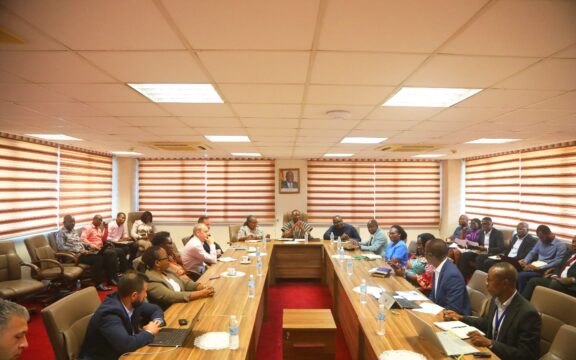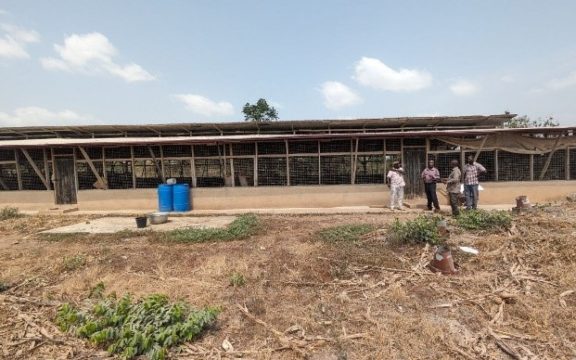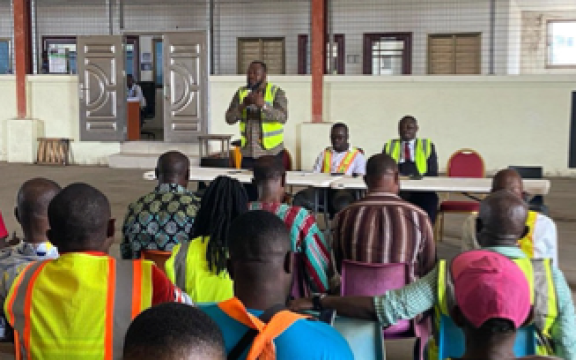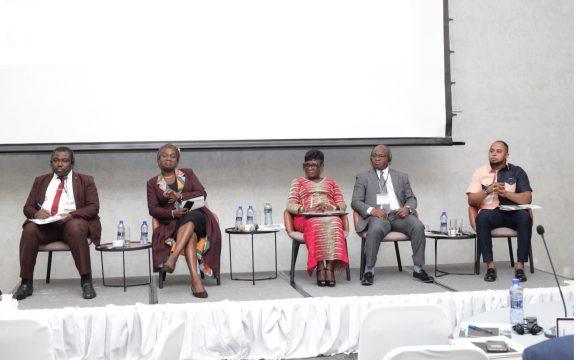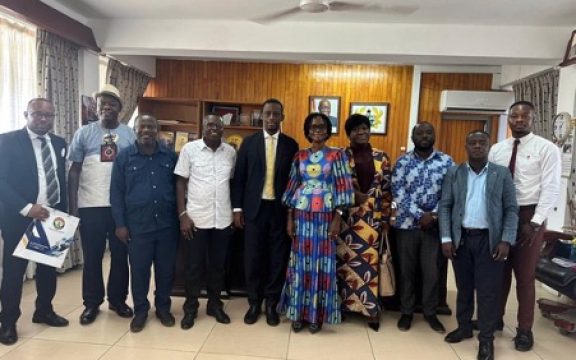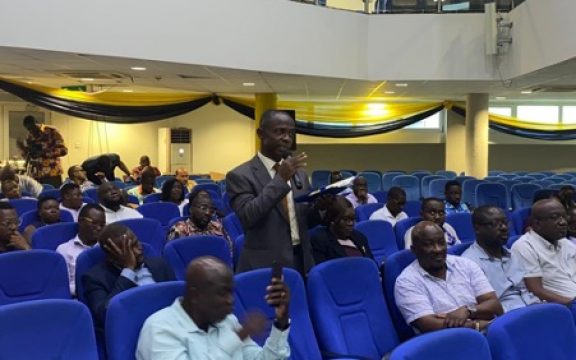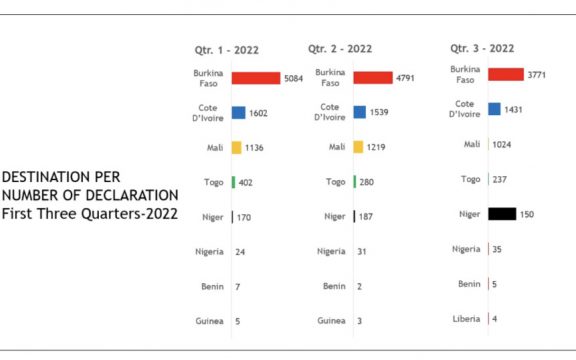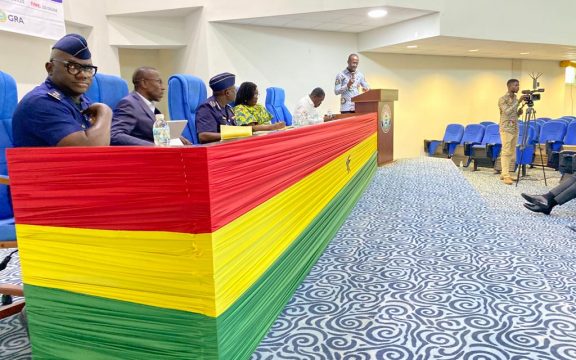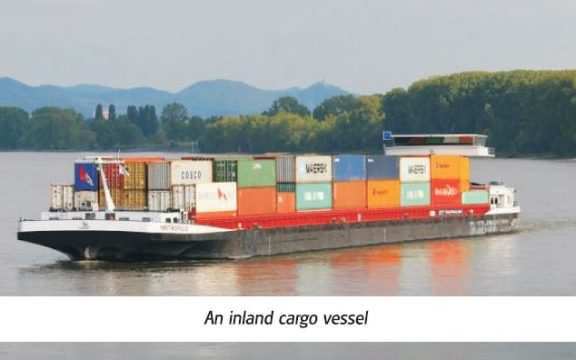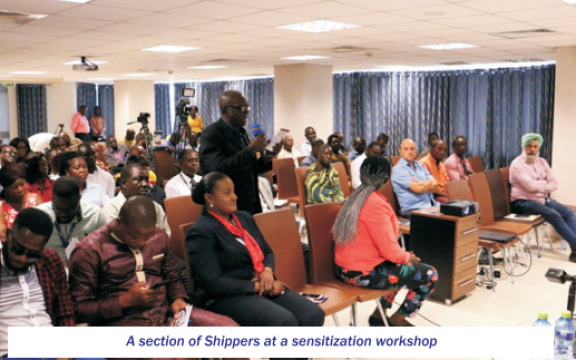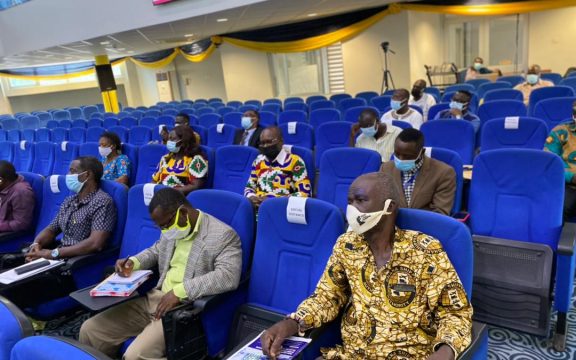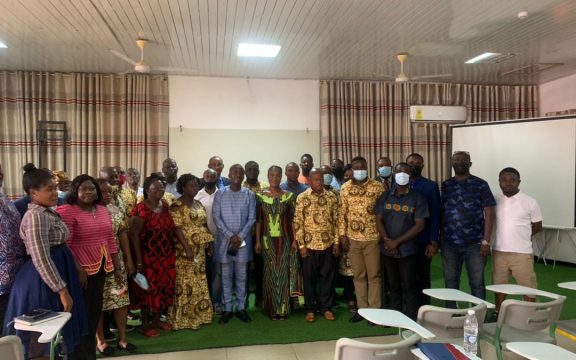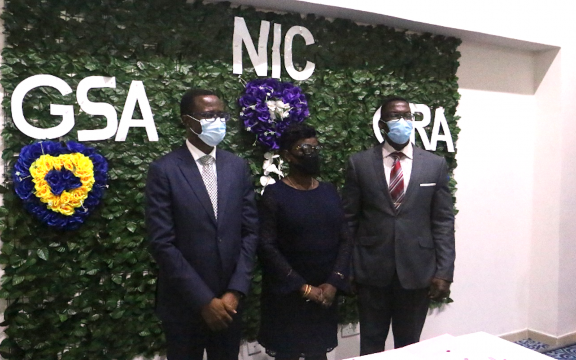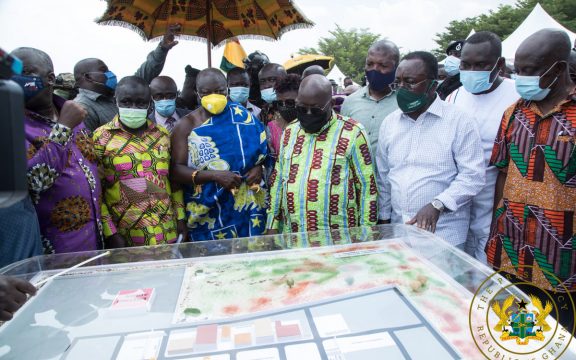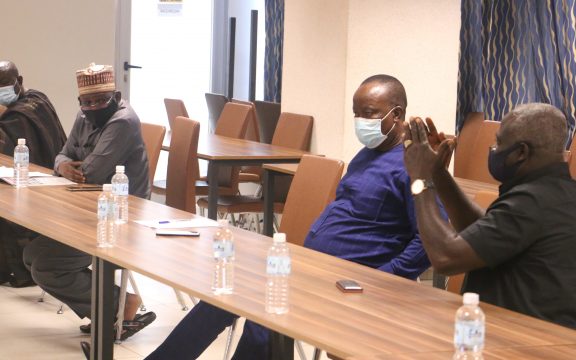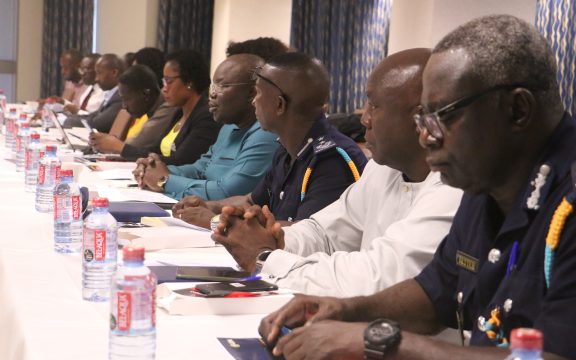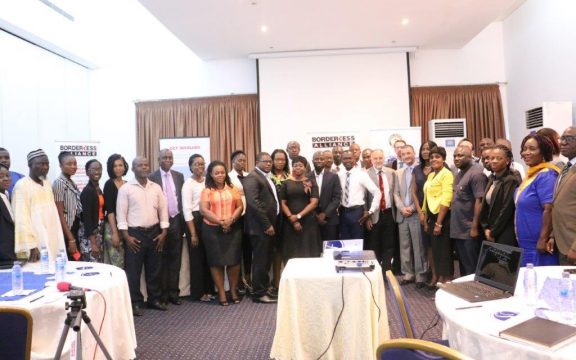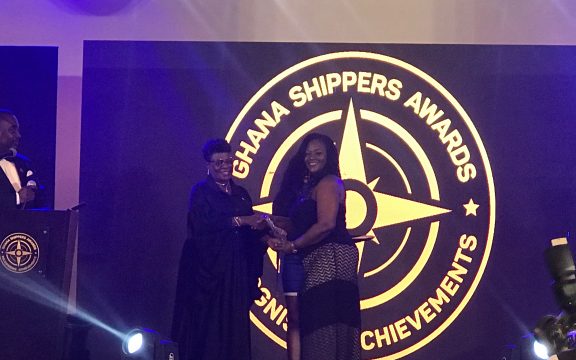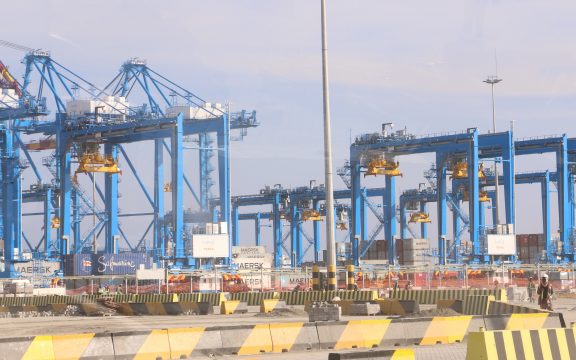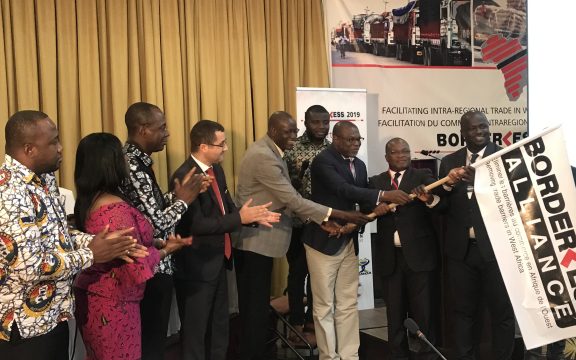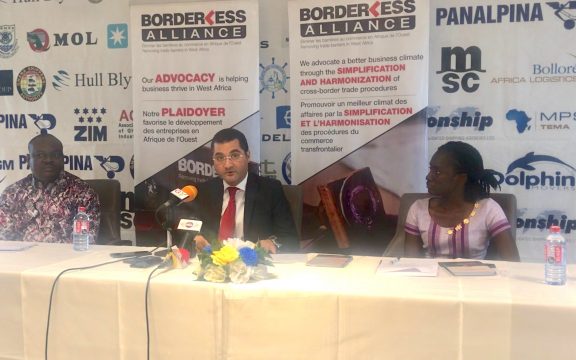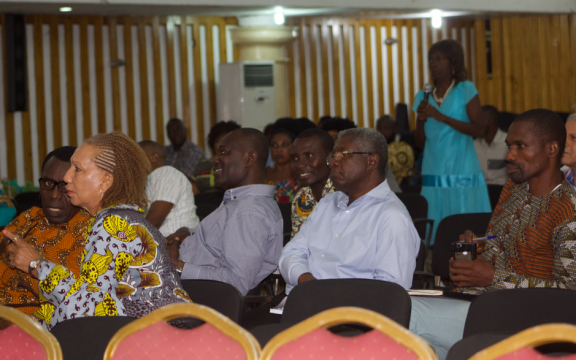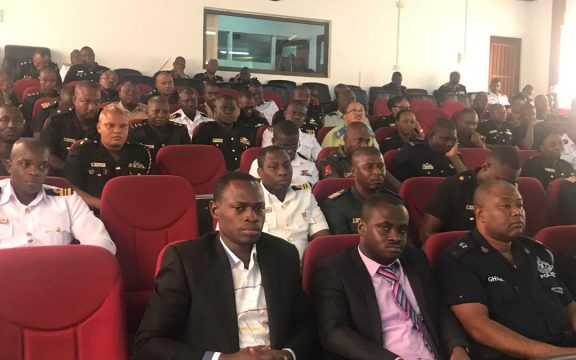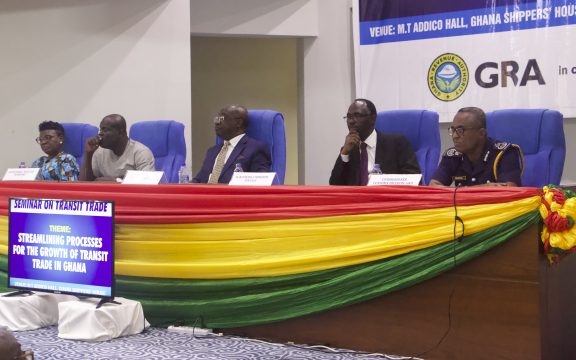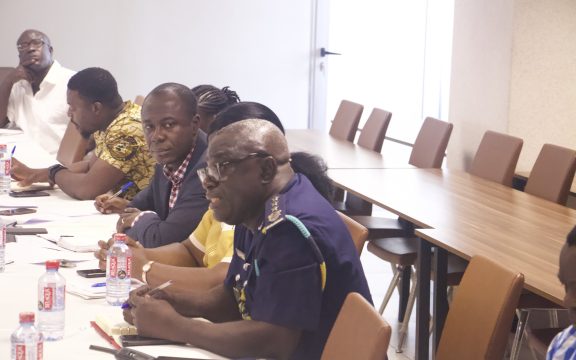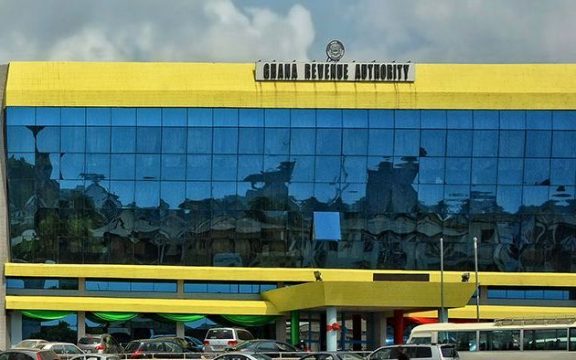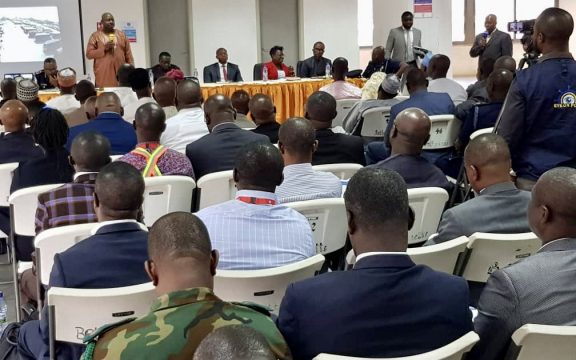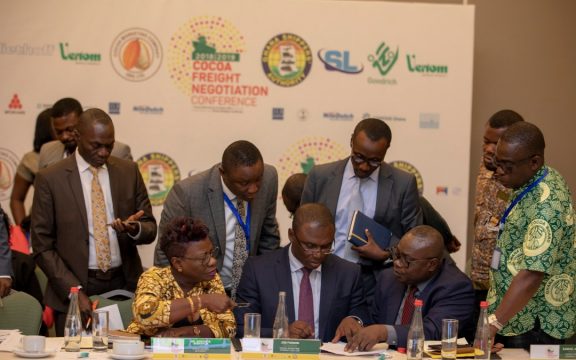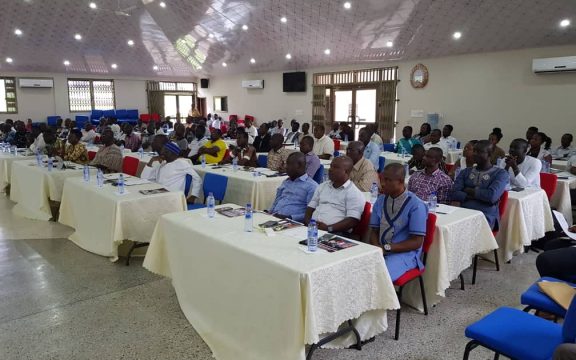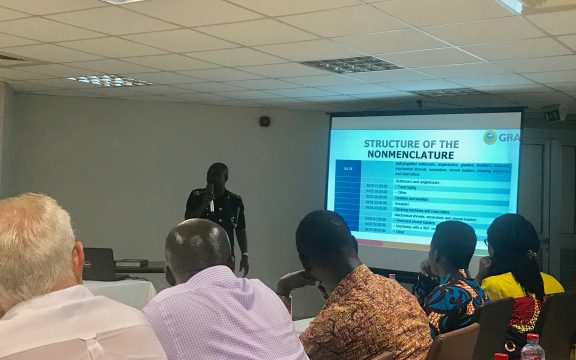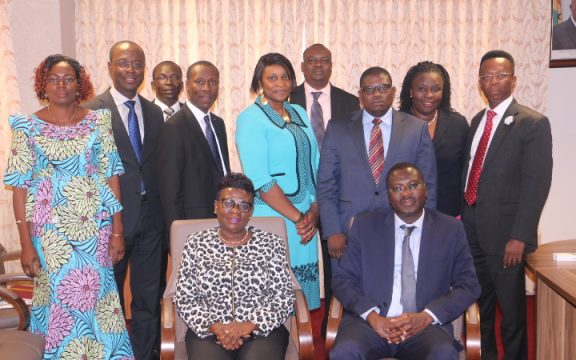The Member of Parliament for Gushegu, Hon. Hassan Tampuli, has urged the Minister for Trade, Agribusiness, and Industry, Elizabeth Ofosu Agyare, to take advantage of the newly passed Ghana Shippers Authority Law, GSA ACT 2024 (Act 1122), to address the shipping challenges faced by traders.
According to him, the government needs to take stringent action against arbitrary charges by shipping lines, which do not only reduce the profit margins of traders but also contribute to the high cost of goods, resulting in inflationary pressures.
He made this known while speaking on the floor of Parliament in support of the approval of Mrs. Elizabeth Ofosu Agyare’s nomination to take up the office of Minister for Trade, Agribusiness, and Industry.
He stated that the newly passed Ghana Shippers Authority (GSA) Law, Act 1122 (2024) mandates that shipping lines can only implement charges that have been approved by the GSA.
He said: “Currently, if you look at the Bill of Lading, there are about 22 line items. One particular line item known as container cleaning charges can cost approximately 15,000 cedis, in addition to everything else that needs to be paid at the source (the origin of the import). We do not handle less than 1.2 million containers per year; when you calculate that, we are talking about millions of dollars. Some shipping lines even insist on these payments being made in U.S dollars or Euros. The Shippers’ Authority Act, Act 1122 (2024) was passed recently, and we have emphasized that shipping lines cannot impose such charges except for those that have been approved by the Ghana Shippers Authority.”
 Hon. Tampuli is confident that if the country’s commercial shipping sector is sanitized, it will ensure fair and predictable tax system to enhance cross-border trade among ECOWAS nations.
Hon. Tampuli is confident that if the country’s commercial shipping sector is sanitized, it will ensure fair and predictable tax system to enhance cross-border trade among ECOWAS nations.
The Burden of Declining Container Traffic
Hon. Tampuli’s call for stricter regulation of the commercial shipping sector comes against the backdrop of fluctuating container traffic volumes at Ghana’s ports, reflecting deeper economic challenges. According to data from the Ghana Ports and Harbours Authority (GPHA), Ghana recorded its highest container throughput of 1,604,724 TEUs in 2021. A sharp 22% decline in 2022 brought volumes down to 1,244,245 TEUs, with preliminary 2023 figures indicating further dips to approximately 1.2 million TEUs. January 2024 figures offered a glimmer of hope, with 60,000 TEUs processed, hinting at a possible stabilization in port operations, an expectation that would be ascertained when the full year, 2024 data becomes available.
Despite these challenges, the Ghana Revenue Authority (GRA) reported a 37.5% surge in revenue collection from port activities, reaching GHS 13,943.67 million in 2023, although this still fell short of targets. Import duties and levies accounted for 12.3% of total tax revenue, highlighting the indispensable role of port-related revenue in government finances.
Regulatory Response: The Ghana Shippers’ Authority Act, 2024
The recent enactment of the Ghana Shippers’ Authority Act, Act 1122 (2024), represents a critical step toward reining in arbitrary shipping charges and fostering a fair trade environment. In the new Act, shipping lines must now submit all charges for GSA approval before implementation. The Act further empowers the Authority to impose sanctions on non-compliant entities, reinforcing a strict regulatory framework aimed at protecting importers and exporters from exploitative fees.
Hon. Tampuli emphasized the significance of this legislation in empowering the GSA to take decisive action. “This Act provides the GSA with the legal muscle to hold shipping lines accountable and restore confidence in our trade facilitation systems,” he stated, urging Freight Forwarders and business associations to support its enforcement.
Stakeholder Reactions and Industry Concerns
Industry players, including Freight Forwarders and Trade Associations, have persistently raised concerns over what they describe as exploitative practices by shipping lines in the past months, but these have not yielded any positive response. A recent report by the Daily Graphic captured protests from the Freight Forwarding community, citing unreasonable fees such as local administrative charges, container cleaning fees, and weekend demurrage penalties.
Kwabena Ofosu-Appiah, a former president of the Ghana Institute of Freight Forwarders in one of such protests, emphasized that these arbitrary fees, imposed without transparency, have compounded the cost of doing business. “For years, traders have faced unwarranted charges, making Ghana an increasingly expensive destination for imports,” he noted, calling for tighter enforcement of the new law.
Hon. Tampuli’s advocacy has resonated strongly with affected traders, who argue that without decisive regulatory intervention, Ghana risks losing its position as
the preferred trade gateway to the sub-region. Industry observers further stress the need for a balance between revenue generation and a supportive trade ecosystem to drive national development.
Looking Ahead: Opportunities for Reform
With container traffic showing early signs of recovery in 2024, stakeholders are cautiously optimistic about the potential impact of sustained regulatory oversight. However, deeper structural inefficiencies in the taxation and shipping cost framework must be addressed to create a more predictable and trader-friendly environment.
The focus now shifts to the newly vetted Minister for Trade, Agribusiness, and Industry, Elizabeth Ofosu-Agyare, whose leadership is expected to chart a new course for sustainable trade reforms. Stakeholders anticipate a collaborative approach, involving regulatory bodies, industry groups, and government agencies, to develop solutions that enhance Ghana’s trade competitiveness.
As Ghana positions itself as a strategic logistics hub within West Africa, ensuring a conducive trading environment remains paramount. The GSA’s enforcement of the Act will be closely watched as traders, investors, and policymakers seek a long-overdue transformation in the country’s shipping and trade facilitation landscape.



